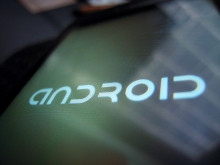BT backpedals on claims almost every Android device has malware
Late last week, I wrote about some eye-raising statements made by a British Telecom (BT) security expert at the NetEvents Americas. Now, BT has backpedaled on the claims. To refresh your memory, here's what Jill Knesek, head of the global security practice at BT, said:
We analyzed more than 1,000 Android applications and found a third compromised with some form of active or dormant malware. Almost every device is compromised with some kind of malware, although often it's not clear if that code is active or what it is doing.













































































